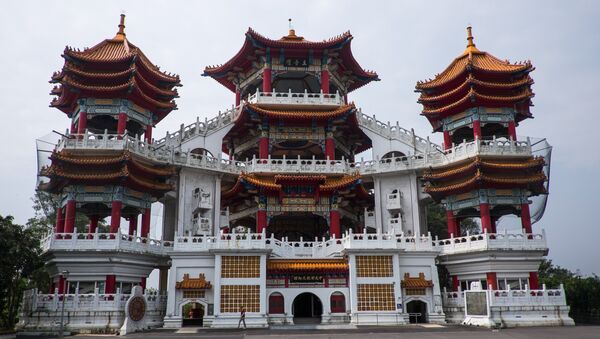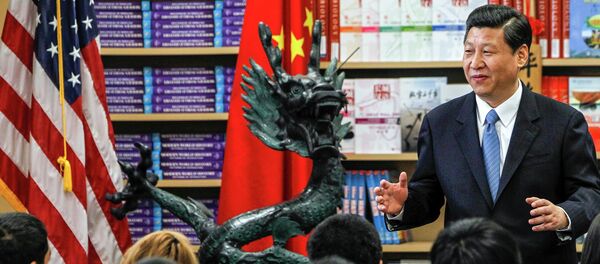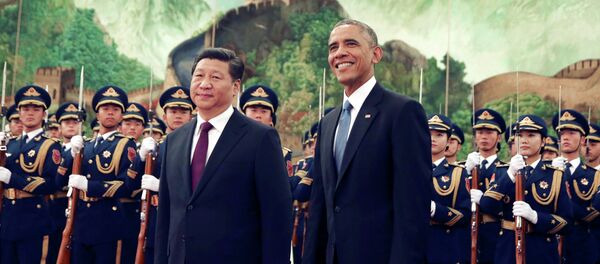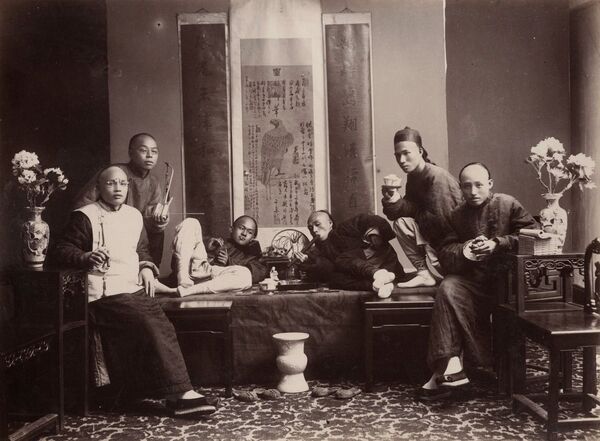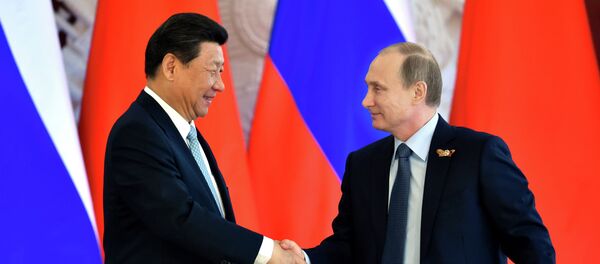China could also boast a rapidly growing economy. Up to the 18th century the country's GDP was twice that of Western Europe.
Western merchants appeared in Chinese waters in the early 16th century. The Dutch, Portuguese and British tried their best to open trading enclaves at the Chinese borders, but their attempts to penetrate into the heart of the Middle Kingdom were met with fierce resistance.
The Chinese believed that they possessed all the technological and intellectual skills they needed to run their empire. Furthermore, they regarded Europeans as "barbarians" and did not see the necessity to be involved in trade and interaction with Westerners.
The Chinese agreed to sell tea, silk and porcelain to the British in return for silver but rejected European goods, monitoring closely merchants' movements within Canton — the only port the foreigners were allowed to enter.
The East India Company and Illicit Opium Trade
Eventually the solution was found and it was called "opium." On behalf on the British Crown, the East India Company administered parts of India: by the 1760s it gained control over the north-western Indian territories including Bengal. The Bengal region was famous for its opium plantations. It was considered a luxury item by Indians who used it as medicine or drank it as a beverage.
However, after the East India Company seized the region, it expanded the poppy cultivation which provided the British Empire with immense economic wealth.
Opium is a highly addictive substance. The British merchants knew it perfectly well and used it to their advantage. In 1773 the company launched its opium project in China. The trade was completely illicit — the Chinese government had repeatedly banned the consumption of opium. However, the British company used various ways to smuggle the narcotic into the country.
At the end of 18th century the trade of the drug increased tremendously. For comparison's sake, at the time when the opium trade was prohibited by the Chinese government in 1729 about 200 chests (12 tons) were imported to China from abroad.
However, after the British East India Company maintained its control over the illicit drug trade the amount of opium imported into China surged to 10,000 a year (between 1820 and 1830) and soon mounted to 40,000 chests (2,500 tons) of opium by 1838.
The Opium Wars: Great Britain versus China
In response, the Qing ruling dynasty toughened restrictions against the British opium trade. This conflict escalated into the First Opium War between Britain and China from 1839 to 1842.
In fact the British Empire was struggling for its "right" to smuggle as much opium to China as possible, while the Chinese were fighting for very existence of their nation. Unfortunately, for the Middle Kingdom, the British won the war and Hong Kong was ceded to Britain in accordance with the Treaty of Nanking of 1842. The British took over the five main Chinese ports including Canton and continued to sell opium in the country in large quantities.
The Second Opium War (1856-1860) was again lost by the Chinese government, this time to the British and the French. The British Empire ultimately forced the exhausted country to legalize the opium trade and increased its imports of the drug up to 60,000 chests a year.
According to the Treaty of Tientsin (1858), foreign merchants were allowed to travel freely along the Chinese coast and up the Yangtze River. China was obliged to open 11 more ports for foreign ships. Foreign traders obtained the right to hold property in the country. At the same time, China's rights to rule its own territory were drastically limited. It was the time of degradation and humiliation for the nation.
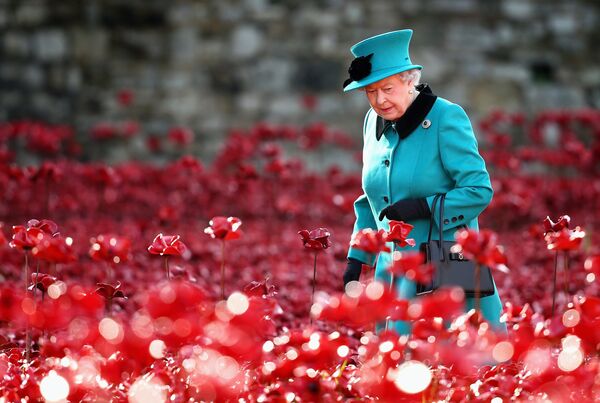
Tearing the 'Middle Kingdom' Apart
The Chinese people were deeply frustrated by the Western advance and the incapability of the Qing dynasty to cope with the problem. Between 1899 and 1901 the Boxer Rebellion took place in China aimed against the Western influence and Christian communities. However, besides religious matters, the uprising was caused first and foremost by the decades of foreign aggression and humiliation of the Chinese. The European powers decided to step in and divide the country into spheres of influence in order to settle the conflict.
In order to protect the country's sovereignty China's Empress Dowager Cixi decided to take the "boxers" side and declared war against the Western powers. The future of the Chinese statehood and its national identity was hanging at the balance, since the military power of the West exceeded that of China.
However, the First World War (1914-1918) saved China from dissolution. Since then the country has been repeatedly subjected to the foreign aggression until it was re-unified and reformed under the rule of the Communist Party of China, which worked in close cooperation with the USSR. By 1949 the Chinese Communists gained control over the mainland and centralized the country. Interestingly enough, it was China's Communist Party who wiped out the opium "plague" from the country.
Although the country has finally reached peace and stability and made an incredible technological leap, China's memory of the West is far from benign.
Ekaterina Blinova is a historian specialized in medieval and modern history, international relations, political science and sociology. She is a regular contributor to Sputnik International.

